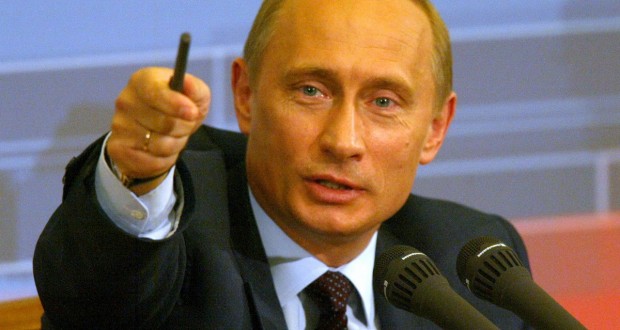In Ufa, Vladimir Putin chaired a meeting of the Presidential Council on Inter-ethnic affairs.
Regular meeting of the Council was devoted to the implementation of the state national policy in the Russian Federation. The agenda included also the issues of improvement of regional legal bases, systems, staffing, ethnological monitoring, socio- cultural adaptation and integration of migrants.
“For most Russian regions, ethno-cultural and religious diversity is well- known, and we will discuss what is being done locally to ensure inter-ethnic peace and accord ,” – said head of state, opening the meeting today .
We note that in these days in Ufa, 225th anniversary of Central Spiritual Board of Muslims is celebrated. And this is a significant event did not go unnoticed by the Russian President. In his speech, Putin praised the edict of Catherine II, according to which, the Spiritual Assembly of Mohammedan law was founded. According to the President, this decision has contributed to self-organization of Muslim community in Russia and, of course, its fruitful progressing to serve the community and our country.
“This significant event played a very important role in strengthening of Russian statehood, has contributed to the creation of a common spiritual and cultural space, uniting us in formation of values and traditions, – the President said . – Our duty – to keep this unique heritage, maintain ethnic harmony, adequately and competently respond to new challenges and contemporary problems.”
Furthermore, Putin recalled that after the first meeting in Saransk , according to the initiative of the Government , a Plan had been adopted on implementation for years 2013 – 2015 the Strategy of the state national policy until 2025, and the program “Strengthening unity of Russian nation, ethnic and cultural development of the peoples of Russia ,” in framework of which funding for regional programs is envisaged .
“Now, it is especially substantive active efforts are valued, rushing of regional and municipal authorities actually to enforce the new strategy of state national policy – of course, taking into account a specific nature of the territories”, – Putin said . According to these facts, mentioned by the President, only nine subjects of the Russian Federation, have prepared the plans to implement Federal strategy. In other words , heads of only few regions considered an important step to take necessary measures to prevent conflicts arising from inter-religious and inter-ethnic relations.
It is inter-ethnic relations, Putin named, one of the most important , complex, and one of the most sensitive issues requiring our collective attention. ” It should be remembered that discords on the ground of inter-ethnic relations tend to originate locally where they need to be blocked in advance “, – he said.
The President believes that “prevention of ethnic conflicts need modern system methods and approaches. In particular, the creation of a monitoring system of inter-ethnic relations, risk assessment , measures to prevent possible conflicts.
“Special attention must also be paid to staffing issue, we need professionals with the latest knowledge in the field that can establish a direct dialogue with people and public organizations.”
During his speech, the President appealed to his representatives in the Federal districts to help regional and municipal authorities to analyze the situation in inter-ethnic sphere, and to settle with them complex problems arising.
In conclusion, Putin proposed to institute an annual all-Russian public award “For contribution to strengthening of unity of the Russian nation.”
“I think it will be a good incentive for those whose activity is associated with a very responsible and sensitive areas as inter-ethnic relations ,” – head of state expressed his opinion.
The meeting was also attended by chiefs of federal bodies of state power, all-Russian national-cultural associations, scientific and expert communities.

